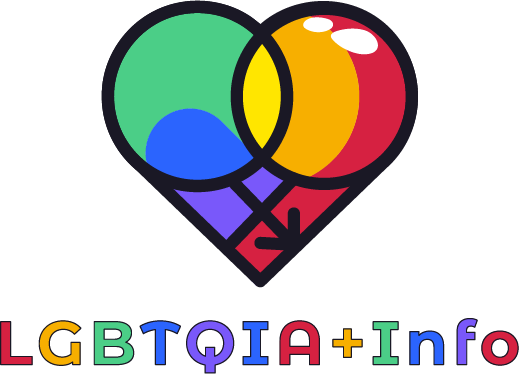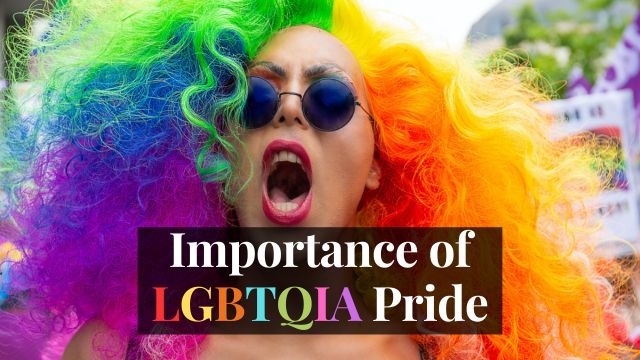In terms of inclusion and acceptability in society, the LGBTQIA+ group has gone a long way. But since prejudice and discrimination still persist, it’s critical to celebrate diversity and advancement. Pride celebrations offer a means to get together, express support, and celebrate uniqueness as well as a reminder of the fight for LGBTQIA+ rights. This article explores the relevance of LGBTQIA+ pride and its significance, history, and goals.
What is LGBTQIA+ Pride?
The LGBTQIA+ pride movement was born in the 1970s as a reaction to the pervasive prejudice and violence directed at this group. Regardless of sexual orientation, gender identity, or gender expression, it attempts to encourage self-affirmation, dignity, and equality for all people. To commemorate the Stonewall riots of 1969, a series of demonstrations in New York City that served as a turning moment in the struggle for LGBTQIA+ rights, Pride celebrations are traditionally held in June.
The History of LGBTQIA+ Pride
The first LGBTQIA+ pride celebration took place on June 28, 1969, when police attacked the Stonewall Inn, a well-known homosexual bar in New York City’s Greenwich Village. The raid led to the founding of the Gay Liberation Front and other LGBTQIA+ rights organizations. It also provoked a series of violent demonstrations and altercations between police and activists.

The first Gay Pride marches was place in New York City, Los Angeles, and Chicago the next year. Since then, Pride celebrations have proliferated and grown to be an integral component of the LGBTQIA+ community on a global scale.
The Purpose of LGBTQIA+ Pride
LGBTQIA+ pride promotes equality for everyone by celebrating differences and raising awareness. Pride gives LGBTQIA+ individuals a safe space to express themselves, connect, and celebrate. They also assist to promote awareness of the problems and experiences of LGBTQIA+ individuals in the greater community.
The Significance of LGBTQIA+ Pride
It is important to celebrate LGBTQIA+ pride because it serves as a symbol of the advancements that have been accomplished by the LGBTQIA+ community in terms of acceptance and inclusion in society.
The struggles for LGBTQIA+ rights and the continuing battle for equality are brought to mind during Pride celebrations, which serve as a reminder of such struggles. They also provide a chance to highlight the variety and uniqueness of persons who identify as LGBTQIA+, therefore spreading a message of acceptance and inclusiveness to a wider audience.

How to Celebrate LGBTQIA+ Pride
There are various methods to show support for LGBTQIA+ groups and concerns, including participating in Pride celebrations, wearing rainbow-colored clothing, or other markers of LGBTQIA+ pride. It’s also important to educate oneself on LGBTQIA+ issues and to support and understand LGBTQIA+ people by acting as an ally.
LGBTQIA+ Pride and Mental Health
Pride in being LGBTQIA+ is crucial for mental health because it fosters self-acceptance, self-worth, and a feeling of community. LGBTQIA+ people are more likely to have favorable mental health outcomes, such as reduced levels of sadness and anxiety, if they feel welcomed and supported. Pride celebrations provide LGBTQIA+ people a chance to interact with others, receive support, and encourage mental well-being.
LGBTQIA+ Pride in the Workplace
In the workplace, LGBTQIA+ pride is important because it fosters equality, diversity, and inclusion. Employers are more likely to draw in and keep diverse talent if they support LGBTQIA+ rights and foster an inclusive workplace. Employers may express their support for LGBTQIA+ people and promote an inclusive culture by participating in Pride activities.
Learn more about the struggles and obstacles that LGBTQIA individuals have faced throughout history and discover ways you can help promote equality and human rights for all.

LGBTQIA+ Pride and Intersectionality
Recognizing that the LGBTQIA+ community is not a homogenous group and that members of the community experience a range of difficulties depending on their intersecting identities is crucial. The term “intersectionality” describes how different aspects of a person’s identity, such as their color, ethnicity, religion, and ability, interact and influence how they experience discrimination and oppression. Events celebrating LGBTQIA+ identities must acknowledge and welcome all participants, fostering a welcoming environment for everyone.
LGBTQIA+ Pride and Advocacy
Pride celebrations provide LGBTQIA+ people and supporters the chance to promote change and go forward. Lobbying for LGBTQIA+ rights, supporting LGBTQIA+ candidates and elected officials, and advancing LGBTQIA+ issues on social media and other platforms are all examples of advocacy activities.
Conclusion
LGBTQIA+ pride is essential for celebrating variety and progress, encouraging inclusiveness and acceptance, and creating a place for LGBTQIA+ people to connect and express their identities. Pride celebrations provide a chance to educate and enlighten the larger community about LGBTQIA+ concerns while also advocating for change. It is critical to continue the battle for LGBTQIA+ rights and to strive toward a more inclusive and tolerant society for all people.

